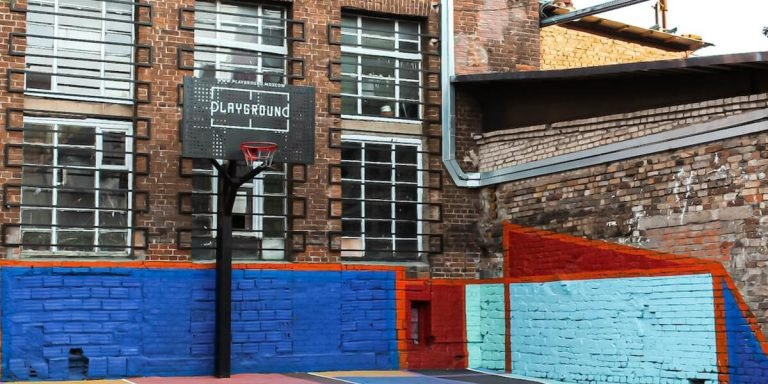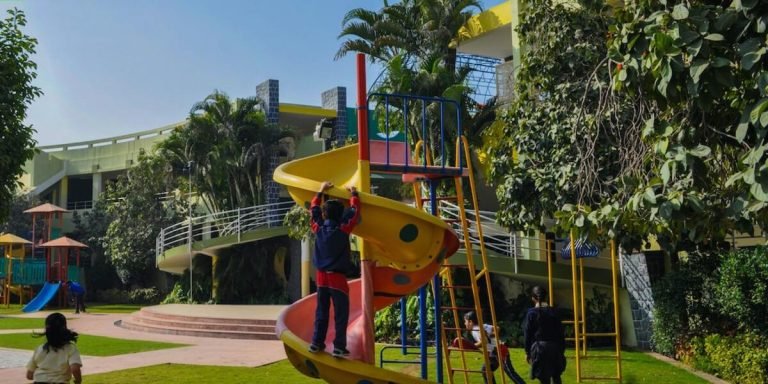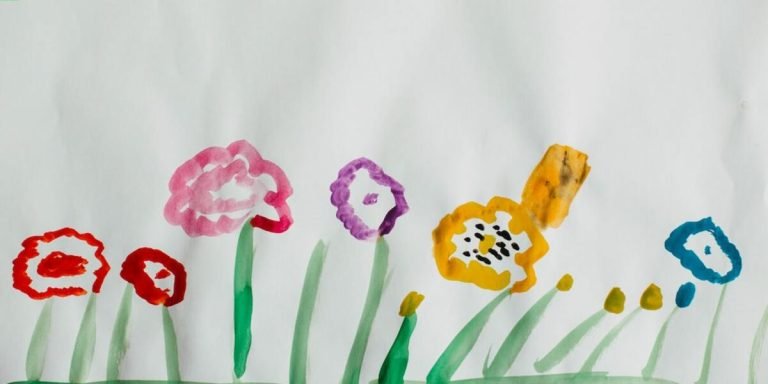Activities for Preschoolers at Home: Fun Learning Ideas to Explore Today
Engaging young minds with educational activities for preschoolers at home has become a crucial part of childhood education. These fun, interactive sessions not only keep little ones busy but also contribute to their cognitive development and enhance academic readiness. Implementing activity-based learning in your day-to-day regimen can prove extraordinarily beneficial.
Activity based learning is an effective technique which uses hands-on tasks that promote critical thinking and problem-solving skills in children. It’s more about ‘doing’ rather than just passive listening or rote memorization thus prompting curiosity, interest, engagement and helps them understand lessons better from the comfort of their homes.
Did you know?
Did you know that the average four-year-old asks approximately 437 questions a day? Channelize this innate curiosity with engaging learning activities at home, to aid their cognitive development.
The Role of Activity-Based Learning in Early Childhood Development
In the digital age, integrating technology and education presents innovative opportunities for activity-based learning. Utilizing activities for preschoolers at home that blend early childhood development with various technological tools can fuel cognitive growth in ways we couldn’t before. The role of these interactive experiences is crucial to support a child’s natural curiosity while teaching foundational skills necessary in today’s tech-driven world.
Activity-based learning plays an integral part in early childhood development by promoting hands-on involvement rather than passive absorption of information. As parents guide their children through activities designed specifically for preschool-age learners at home, they instill not only knowledge but also critical thinking and problem-solving abilities—skills that resonate throughout life.
The concept involves utilizing apps or online platforms loaded with engaging exercises crafted explicitly around different themes like art, math or science – all adapted appropriately to suit young minds’ developmental stages. With items such as building block coding projects or virtual painting programs offering creative approaches toward understanding essential concepts traditionally considered complex; what was once mundane becomes exhilarating.
Embracing this model allows educators and parents alike to utilize resources previously inaccessible: transforming screen time from mindless entertainment into profound educational endeavors which foster intellectual stimulation coupled with enjoyment – birthing perfect symbiosis between fun-learning & techno-literacy setting solid foundation stones towards shaping future global citizens who navigate seamlessly amidst 21323’s digitized landscape.
Understanding the Impact on Cognitive Growth
When talking about the cognitive development of preschoolers, it’s essential to understand the role activity-based learning plays. Incorporating activities for preschoolers at home can greatly aid their early childhood development.
Firstly, these types of engagement encourage children to explore and discover their surroundings. This curiosity-driven exploration lays a robust foundation for future problem-solving skills and critical thinking abilities; they learn cause-effect relationships by direct manipulation of their environment.
Furthermore, technology integration in education has made activity-based learning more interactive and fun-filled. For instance, augmented reality games or educational apps engage your child while teaching them crucial concepts like numbers or alphabets.
Additionally, incorporating such methods also helps develop social-emotional capacities in youngsters. Children learn how to share resources during group activities – an excellent way to instill teamwork cooperation from an early age! These experiences can be beneficial as it gives rise thermoregulator understanding emotions – building empathy towards others’ feelings creates compassionate individuals out there!
Stimulating Emotional and Social Skills Through Play
Activity-based learning plays a crucial role in early childhood development, especially when it comes to promoting emotional and social skills. Preschoolers are like young explorers ready to discover the world around them through their senses. Incorporating activities for preschoolers at home can be an effective way of stimulating these crucial developmental aspects.
One primary advantage of activity-based learning is that it fosters independence among children while helping them learn essential life skills such as problem-solving and decision-making capabilities.
For instance, you might set up a simple game where your child must sort different objects by color or shape. This type of cognitive play encourages children to think critically about the task at hand, practice making decisions independently and sharpening their focus – all while having fun!
Another benefit revolves around improving kids’ social interactions; when they engage in group activities with other youngsters, they naturally develop communication skills which significantly contribute towards building healthy friendships later on.
When talking about developing emotions through play centered learning strategies; exposing preschools to various ideas revolving around sharing toys allow exploring qualities such as kindness empathy & compassion too! Implementing active games help decrease loneliness increases overall happiness level amongst kids resulting improved mental well-being.
Essential Elements for Designing Engaging Home Activities for Preschoolers
In the digital age of 2023, integrating technology into education is an essential aspect even when we talk about designing engaging home activities for preschoolers. It’s not just about keeping our young ones entertained; it’s also paving their path to a successful future filled with curiosity and empowerment. The intersection of playtime and learning time has never been more crucial as it is in today’s tech-driven world.
When crafting activity-based learning experiences at home, parents need to ensure that these activities instill creativity while nurturing cognitive skills. Using innovative apps or educational platforms can be beneficial here, serving dual purposes – helping preschoolers learn new concepts while they engage themselves in fun-filled tasks. For instance, simple storytelling sessions using e-books or interactive games teaching shapes and colors could act as a great starting point.
But remember: balance is key! While technological tools have much to offer towards enriching your child’s early development years – physical interaction remains irreplaceable. Combining virtual learning exercises with tangible hands-on projects works best—like use clay modeling guided by online tutorials or conduct science experiments demonstrated over kid-friendly YouTube channels.
Finally yet importantly, allowing kids control of their own pace supports active engagement during such activities which reinforces their self-confidence—an element often overseen but playing an integral part in shaping resilient learners from those tender years itself!
Incorporating Educational Themes into Daily Routines
Incorporating educational themes into daily routines should not be arduous; rather, it’s an enjoyable process where activities for preschoolers at home become engaging and informative. It involves integrating age-appropriate topics within everyday tasks to aid the development of cognitive, creative, and social skills in a relaxed environment.
On waking up each morning, take time to engage your child in talking about the weather or various nature sounds they might hear. This practice introduces them to environmental science while nurturing their observational abilities.
Meal times right from breakfast can open discussions on colors, shapes or even numbers by counting fruits like apples or oranges served on their plate for instance. In 2023 there is also remarkable technology advanced with interactive apps that help parents utilize this mealtime learning effectively.
House chores are another excellent opportunity for incorporating education into activities for preschoolers at home. Sorting laundry tends towards color recognition skill enhancement while setting tables gives room to understand patterns as well as sequence organization.
Playtime should equally serve educational purposes especially activity-based learning which is seen more meaningful when kids play interactively with toys related closely with what was learnt during other routine periods. For example puzzles enhance problem-solving skills whereas clay modelling supports creativity plus fine motor coordination improvement too.
Each bedtime story session provides potential growth areas such as language acquisition apart from teaching moral ethics through carefully selected books relating directly with current societal issues.
Balancing Fun and Education with Interactive Games
Fostering a strong educational foundation for preschoolers can be challenging, especially when bridging the gap between fun and learning. However, interactive games are quickly becoming the solution to this dilemma. With an increasing number of activities for preschoolers at home being available online in 2023, it is vital to choose those that appropriately balance enjoyment with education.
Interactive games play a crucial role in early childhood development by allowing kids to learn through direct involvement and active engagement. They provide absorbing experiences where children enjoy playing while unconsciously retaining information – thus making them beneficial tools for activity-based learning.
Moreover, technology integration has made these recreational mediums even more compelling owing to their immersive nature. Consequently, they cater well towards current young learners who have been born into an increasingly digital world.
When choosing interactive games as activities for preschoolers at home, consider elements such as visual appeal and simplicity of use; ensuring that both tutors or parents can easily navigate through them without unnecessary distractions from pop-ups or ads which could detract from the primary objective – Learning!
Further incorporation of reward systems within these apps also helps keep your little ones motivated throughout their gaming sessions — bonus points or virtual trophies may sound trivial but hold great allure amongst pre-school children enhancing further participation thereby indirectly facilitating comprehension absorption.
Strategies to Maximize Learning Outcomes with At-Home Preschool Activities
In the current digital age of 2023, preschoolers’ education at home has taken on a game-changing dimension with activity-based learning and technology integration. Notably, implementing activities for preschoolers at home can be engaging and fruitful when done right. It promotes their cognitive development while fostering creativity, critical thinking skills and self-confidence.
Further enhancing this approach is integrating these tech-driven activities with regular routines of playtime or snack time; it will help maintain a child’s interest span without overwhelming them. Be patient about investing enough time in acquainting them with new techniques before expecting results – each step counts towards cementing a strong foundation for lifelong curiosity-driven mastery over knowledge.
Tailoring Activities to Individual Child Interests and Abilities
Understanding and catering to a child’s unique interests and abilities is one of the most effective ways to maximize learning outcomes. It’s especially important when designing activities for preschoolers at home, as this approach can significantly enhance their overall educational experience.
Firstly, it’s crucial that parents identify what fascinates their child. Is your little one fascinated by animals? Do they love playing with blocks or painting colorful scenes?
Once you know where their interest lies, design the tasks accordingly. For instance, an animal-loving kid might enjoy a counting exercise involving different species more than traditional flashcards.
Another strategy involves integrating technology into these activities as part of Activity Based Learning (ABL). In 2023, digital resources are plentiful- from stimulating learning apps to interactive e-books – all tailored specifically for early childhood education.
For example, if your youngster loves music , you could download age-appropriate music games on your tablet. This melds together fun playtime elements with basic concepts like rhythm recognition or pitch training which boosts cognitive development in young minds without them even realizing they’re actually learning!
Remember that incorporating physical movement also helps burn off extra energy while reinforcing certain skills; think simple dance-along videos or virtual yoga classes designed for tots!
While creating personalized experiences using tech may seem daunting initially remember there are platforms online which offer ready-made curations according to specific needs making this process smoother than ever before.
Utilizing Everyday Resources for Creative Learning Experiences
As parents and educators, our home environment offers an array of everyday resources that can help transform ordinary moments into captivating learning experiences. With the current emphasis on technology integration in education, we have a unique opportunity to marry digital tools with hands-on activities for preschoolers at home.
Moreover, virtual tours offer an immersive journey through museums, zoos or historical landmarks across the globe – all from the comfort of your living room couch! This encourages exploratory learning while exposing youngsters to different cultures, art forms and life sciences.
In addition to these screen-based methods of instruction consider introducing educational toys that promote STEM (Science Technology Engineering Math) skills such as coding puzzles or Lego robotics kits – thereby nurturing problem-solving capabilities early on in life.
Yet another interesting avenue could be cooking sessions where children assist you by measuring ingredients – this seemingly fun activity surprisingly reinforces mathematical concepts like fractions!
Likewise making music playlists helps develop emotional intelligence as well as rhythmic coordination whereas crafting DIY projects stimulates creativity along with fine motor skills enhancement.
Lastly remember it’s essential balance technological interaction with ample physical exercise hence include tasks such as gardening yoga or online dance classes ensuring holistic development for young minds amidst digitally driven pedagogy!
Conclusion
So there you have it, a bucketful of creative and exciting activities for preschoolers at home that are certain to keep their little minds engaged while also aiding in essential skill development. From transforming your living room into an epic fort village to organizing a fun-filled mini concert, these ideas aren’t just about having fun but also serve as perfect learning opportunities camouflaged as games.
Remember, the key lies in striking the right balance between learning and play. And if you’re seeking more innovative ways on how best to educate young children or need support with parenting or teaching strategies—feel free to delve deeper into our website. We’ve got tons of resources waiting for you!
So why wait? Embark on this enriching journey today because every moment is an opportunity for growth when educating youngsters.







